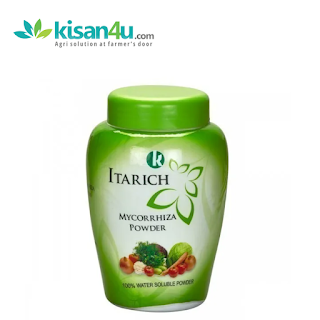Choosing the Best Fertilizer: Different Types for Different Needs
Organic farming is an ever-increasing industry due to the rising consumer demand for organic products. However, the greatest misconception about organic agriculture is it gives delayed results often affecting crop yield and production. Another reason to avoid organic farming is the cost incurred and application complexity of the organic fertilizers. Less is known about the changes surrounding the organic fertilizers industry and the correct methods to use their offerings to derive the utmost benefits. Organic fertilizers are no longer restricted to manure and compost, rather they are available in different categories and compositions to boost plant growth. Also, you can now conveniently order organic crop protection products online to address your customized plant growth issues.
The vital and most underestimated fact in the agriculture industry is the determination of the needs of the plants and the soil. Aggressive marketing campaigns run by fertilizer manufacturers fail to highlight the fact that not all fertilizers are made to suit the customized needs of a particular field. Thus, identifying what your plant and soil needs is essential to yield. Simple fertilizer tests, tests of plant tissues, and analysis of the soil can aid the ideal selection of fertilizers to elevate harvest quantity and quality.
You can get glimpses of the issues faced by your plants to better address them. Chlorosis indicated by the yellow or pale green color of plants indicates the lack of Sulphur and nitrogen. Similarly, iron deficiency can be identified by the white or pale yellow tissues of the plants. Further, you can seek the help of soil testing laboratories to diagnose the extent of mineral deficiency. These activities would assist in the accurate selection of fertilizers the next time you browse for garden care organic fertilizer online.
Types of Organic Fertilizers
Mineral Fertilizers
These include fertilizers that provide nutrients like nitrogen, phosphorus, and potassium. This is the NPK on most fertilizer packaging. Although NPK fertilizers are most commonly used and are easily available, fertilizers to fight calcium, magnesium, and sulfur deficiencies are also available in the market.
Micronutrient fertilizers
A wide range of fertilizers containing essential micronutrients including iron, manganese, molybdenum, nickel, boron, zinc, and copper are also widely retailed currently.
Single Nutrient Fertilizers
Soil and plant testing assist in the determination of specific needs of your fields which can be addressed by the use of single nutrient fertilizers. They are more effective than multi-nutrient fertilizers in well-researched cases as they help to avoid overfeeding and thus burning the crops.




Comments
Post a Comment